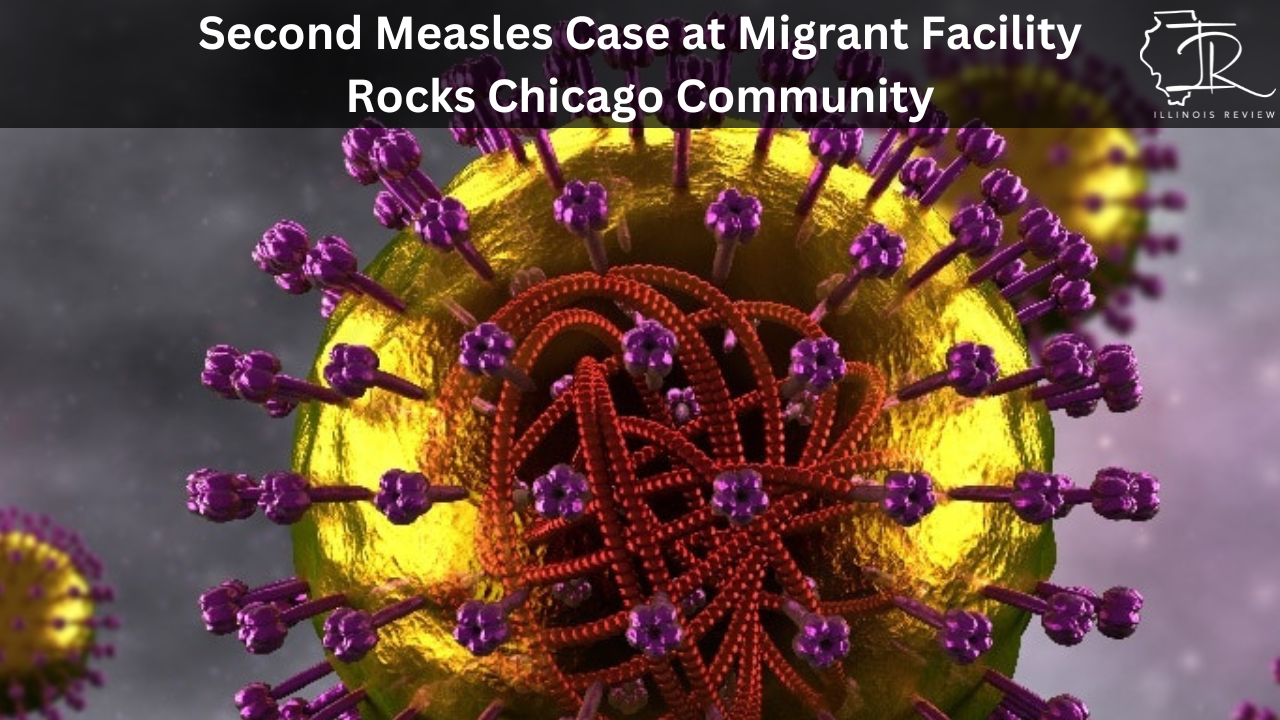In a troubling turn of events that has captured the attention of Chicago and the nation at large, a migrant facility in the heart of the city has become the epicenter of a public health concern. In December, a five-year-old child tragically passed away from an unknown illness at this shelter, which currently houses 1,876 migrants. This was followed by the emergence of a measles case within the same walls, underscoring a grave oversight in the city’s public health and immigration policies under Mayor Brandon Johnson’s administration.
The confirmed measles case, in a facility already shadowed by recent tragedy, has reignited concerns over the handling of the migrant crisis in Chicago. The fact that this highly contagious disease was able to infiltrate the shelter points to a significant lapse in health screenings and preventive measures, putting not only the shelter’s residents but the broader community at risk. Despite the child’s recovery, the exposure of an unknown number of migrants to measles—a disease with the potential to spread rapidly in densely populated settings—calls into question the adequacy of the city’s response and preparedness.
Critics argue that Mayor Johnson’s administration has fallen short in addressing the multifaceted challenges presented by the influx of migrants, from ensuring adequate living conditions to implementing comprehensive health screenings. The recent health scare highlights a broader issue with the city’s approach to managing its migrant population, suggesting a reactive rather than proactive stance on public health.
Alderman Byron Sigcho-Lopez’s call for an immediate isolation plan underscores the urgency of the situation, yet it also reflects a systemic failure to anticipate and mitigate such risks. The city’s directive for shelter residents to remain in place until their vaccination status is assessed, while necessary, is a measure that comes too late for those already exposed.
Furthermore, the revelation of a second measles case involving a child attending a Chicago Public School (CPS) exacerbates concerns over the spread of infectious diseases and the implications for public health citywide. The decision to advise parents at the shelter against sending their children to school is a stopgap measure that, while prudent, also signals a lapse in initial preventive actions and communication.
The deployment of a team from the Centers for Disease Control and Prevention (CDC) to assist with the response is a testament to the seriousness of the situation. However, it also raises questions about why such significant external intervention is necessary to manage what could have been a preventable scenario had there been more rigorous health screenings and protocols in place from the outset.
Critics of Mayor Johnson’s handling of the situation point to a lack of leadership and a failure to prioritize the health and safety of both the migrant population and the residents of Chicago. The administration’s delayed response and the apparent absence of a robust plan to deal with such health emergencies are glaring deficiencies in the city’s preparedness for handling crises of this nature.
The measles outbreak at the migrant shelter is not just a public health issue; it is a stark reminder of the broader challenges facing cities like Chicago in dealing with large influxes of migrants. It calls into question the adequacy of current policies and practices, highlighting the need for comprehensive strategies that include health screenings, vaccinations, and better living conditions for migrants.
Authors note: The recent health crisis at a Chicago migrant facility has laid bare the shortcomings in the city’s response to the migrant crisis under Mayor Brandon Johnson’s leadership. The lack of proper health screenings and preventive measures has not only put migrants at risk but also posed a potential threat to public health at large. This incident should serve as a wake-up call for the city to reevaluate its approach to managing migrant health and safety, with a focus on proactive and preventive strategies to avoid such crises in the future.









